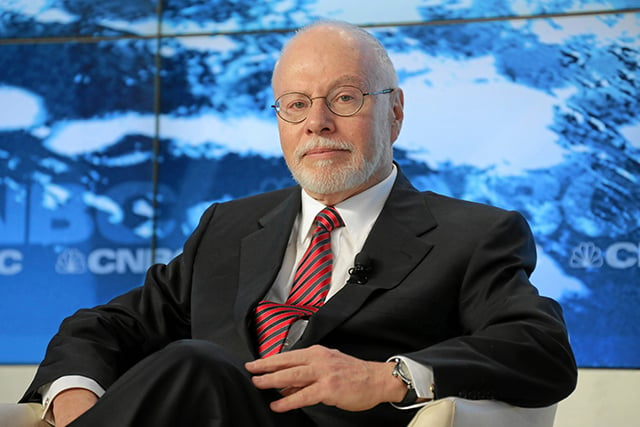
Sometimes the absurdity of what passes for economic wisdom surpasses even my highly adapted expectations.
I really, truly expected that even Wall Street would consider the recent hyperinflation-in-the-Hamptons rant from Paul Singer – the billionaire inflation truther who is sure that the books are cooked – embarrassing and pretend that it never happened. But no. Apparently Mr. Singer’s letter to investors is being passed around eagerly by traders and big shots who think it’s the greatest thing since sliced foie gras.
So what’s this about? Jesse Eisinger at ProPublica recently tried to make a case for the rage of the hedgies. Mr. Eisinger argues that while it’s foolish to claim that the inflation books are cooked, the government and the Federal Reserve Board have created a fake sense of financial health, so the overall perception that it’s some kind of illusion is right.
Sorry, but I don’t buy that.
For one thing, if you want to claim that past stress tests were all fake and that the banks were truly insolvent, shouldn’t we have seen a reckoning by now? I’d say that, in retrospect, it’s clear that many assets really were temporarily underpriced thanks to the market panic, and that once the panic subsided, the big banks were revealed to be in better shape than many people (including me) believed.
Beyond that, Mr. Eisinger is imputing a reasonable analysis to the likes of Mr. Singer based on no evidence that I can see. I’d suggest that when Mr. Singer talks about a debased currency and fake economic growth, that’s because he really believes that we have a debased currency and fake growth in the United States, not as a metaphor for some other kind of economic deception.
And where is that perception coming from? I still think a recent analysis from the economist Brad DeLong has it right. What we’re seeing here are traders who looked at historical correlations – while disdaining macroeconomics – and concluded that low interest rates would surely rise back to historical norms. When those rates did no such thing, they looked at the Fed’s intervention – and to them it looked like a big trader distorting markets, London Whale-style, by making huge bets that would surely go bad. So they sat back and waited for the collapse.
And the collapse keeps not happening because the Fed is not a rogue trader and historical norms for interest rates aren’t relevant in a persistently depressed, deleveraging economy. But rather than acknowledge that they were wrong, let alone that Keynesian macroeconomics has something to teach them, they lash out and claim, “It’s all fake!”
Also, really rich people often have no idea when they look ridiculous. After all, who in their entourage is going to tell them?
Thank you for reading Truthout. Before you leave, we must appeal for your support.
Truthout is unlike most news publications; we’re nonprofit, independent, and free of corporate funding. Because of this, we can publish the boldly honest journalism you see from us – stories about and by grassroots activists, reports from the frontlines of social movements, and unapologetic critiques of the systemic forces that shape all of our lives.
Monied interests prevent other publications from confronting the worst injustices in our world. But Truthout remains a haven for transformative journalism in pursuit of justice.
We simply cannot do this without support from our readers. At this time, we’re appealing to add 50 monthly donors in the next 2 days. If you can, please make a tax-deductible one-time or monthly gift today.